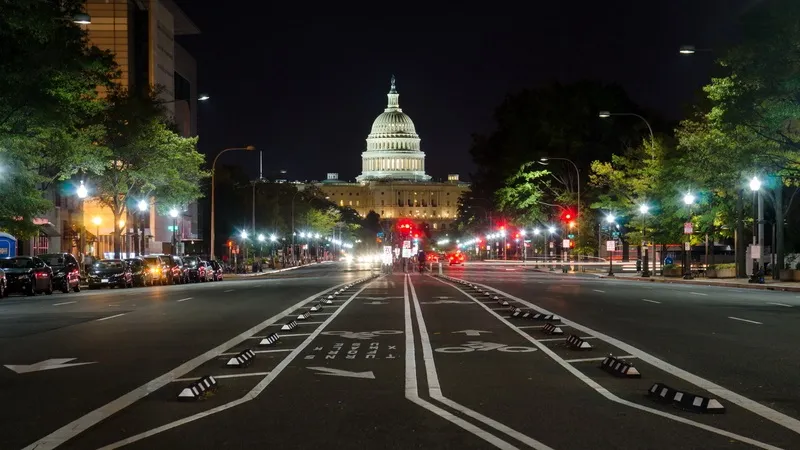
Los Angeles is putting some serious money behind an ambitious 30-year transport blueprint - $400 billion, to be exact.
The Los Angeles County Metropolitan Transportation Authority (Metro) board has approved its updated 2020 Long Range Transportation Plan (LRTP) following public consultation.
Earlier this month, California governor Gavin Newsom signed an executive order which would see the sale in the state of all gasoline-powered vehicles banned by 2035, in a bid to switch drivers onto electric cars.
The Metro plan is separate, and lays out ambitions in four main areas: better transit, less congestion, 'complete streets' and access to opportunity.
It sets out how Metro will add more than 100 miles of rail up to 2050, and invest in arterial and freeway projects to reduce congestion, such as the I-5 North enhancements project, as well as the creation of more ExpressLanes.
There are also plans for more bicycle and pedestrian projects, such as the LA River Path, in addition to prioritising bus travel on busy roads including Wilshire Boulevard and making services more frequent.
The estimated prize is an 81% increase in daily transit trips, a 31% drop in traffic delays - and a 19% decrease in overall greenhouse gas emissions in the county.
Metro will invest in new mobility options such as on-demand microtransit, while allocating money for more traditional costs, such as $200bn for repairs and $38 billion to local transit agencies.
"Los Angeles is entering a transportation renaissance — a chance to redefine our city’s relationship with public transit and reimagine the ways it can be a force for good in people’s lives," said Los Angeles mayor Eric Garcetti.
"The LRTP paves a clear path to a more sustainable, fair, and equitable transportation future."
Metro CEO Phillip A. Washington warns: "For this plan to succeed, we must and will continue to build strong partnerships with local, state, and federal agencies as well as our many local stakeholders."
This would be critical for funding and delivering projects and for coordinated regional planning, he added.
The plan suggests that, after implementation, 21% of LA County residents and 36% of jobs "will be within a 10-minute walk of high-quality rail or bus rapid transit options".
The figures are currently 8% of residents and 16% of jobs.







